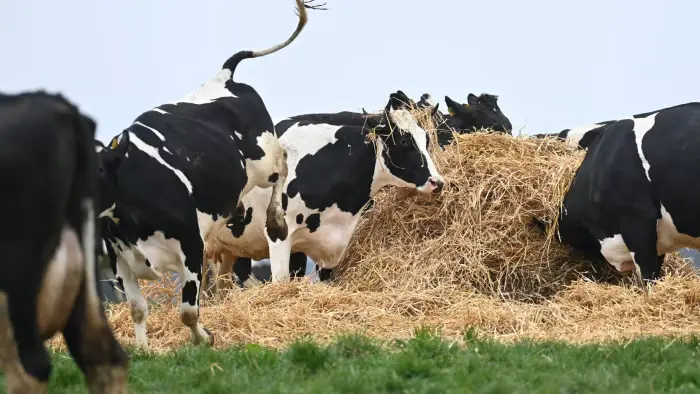silence7MtoClimate - truthful information about climate, related activism and politics.@slrpnk.netEnglish•7 days ago7 days ago
Denmark to charge farmers €100 a cow in first carbon tax on agriculture | Coalition government agrees annual levy on emissions from livestock after months of fraught negotiations
(www.ft.com)silence7MtoClimate - truthful information about climate, related activism and politics.@slrpnk.netEnglish•7 days ago7 days ago
Archived copies of the article: archive.today ghostarchive.org

And raising the price on a good does what to the demand…?
C’mon, think back to your high-school economics class. I’m sure you can get the answer.
Lol. They don’t teach actual economics in high school. That is a huge problem.
https://lemmy.world/comment/10829248
People pay ridiculous prices for name brand products that they don’t even need. $800 for a phone, no problem. $2500 for a TV, no problem.
If the little brats want some milk for their cereal, well mom is gonna just go out and buy a gallon of milk, even if it costs $20, just to shut the kids up.
Might as well throw common sense economics out the window when everyone and their cousin thinks they need that fancy 62 inch curved screen 8K television, PlayStation 5, the latest MacBook and iPhone, etc.
People piss money away on useless shit, you think the cost of a gallon of milk or a steak is gonna make a huge impact. Yeah sure, it’ll make a little impact, but I don’t think it’ll be as drastic of an impact as you’re thinking.
Translation: “The law of supply and demand isn’t a thing because it conflicts with my cynical magical thinking!”
The only practical way they’re gonna reduce emissions from cows is to reduce the number of cows. How do you do that? Place restrictions on farmers breeding cows, place hefty fines on farmers that exceed those restrictions, and eat more cows.
Taxing the farmers a measly €100 per year per cow isn’t gonna do all that much. You have any idea how much a good healthy cow is worth? Especially dairy cows, they just keep on delivering milk, for years.
That’s basically my point, taxing the farmers what adds up to chump change in the cattle industry is not going to reduce the number of cattle.
By making beef more expensive so that fewer people want to buy it. We’ve been over this three times already.
Cows don’t disappear when there’s less demand. Cows disappear when people eat them, if they’d just regulate the breeding side of the cattle industry.
They breed fewer of them when there’s less demand.
Let’s do some math here…
100 / 365 ≈ €0.274 per day.
You really think that’ll put much of a dent in a farmer’s wallet?
Let’s do some more math. Let’s say they raise the price of a gallon of milk by €0.10. Nobody will bat an eye, they’ll just chalk it up to general inflation.
A good healthy dairy cow produces ~ 9 gallons of milk per day.
So, €0.10 * 9 = €0.90 per day extra, per dairy cow. That would actually yield the farmer an actual net gain of ~ €0.626 per day, per cow, subtracting the daily tax.
That would actually end up with the farmer gaining ~ €228.50 per year per cow, after the tax.
Ain’t nobody gonna bat an eye if they raise the cost of milk by €0.10 per gallon. Nothing will change, except the farmers will jack the prices around just enough that nobody cares and they actually profit from it.
Oh, so you’re saying the tax is a good start but should be a lot higher? Fair enough then, I agree!